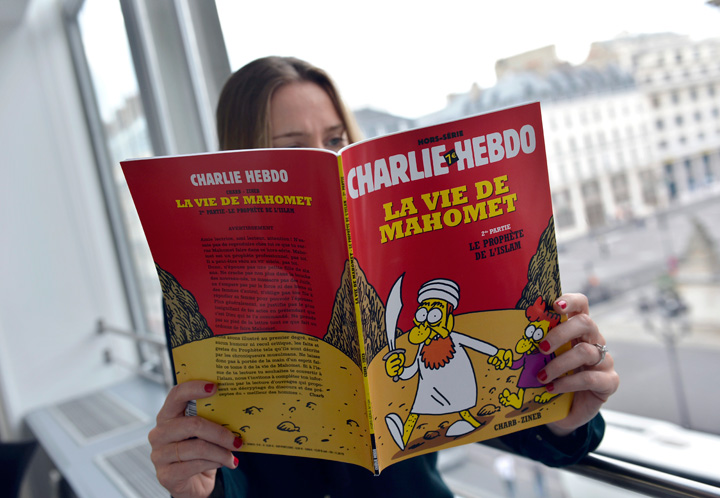TORONTO – If you find it surprising to learn there’s a law that says anyone who publishes “blasphemous libel” could face up to two years in jail in Canada, you’re probably not alone.

Section 296 of the Criminal Code reads like this: “Every one who publishes a blasphemous libel is guilty of an indictable offence and liable to imprisonment for a term not exceeding two years. … No person shall be convicted of an offence under this section for expressing in good faith and in decent language, or attempting to establish by argument used in good faith and conveyed in decent language, an opinion on a religious subject.”
And so, Adriaans’ organization–along with Humanist Canada–plans to lobby the government to remove the law entirely.
READ MORE: Charlie Hebdo attack raises questions about press freedom
His cause has been highlighted in the wake of the deadly Paris shootings that left 12 people dead in the offices of satirical magazine Charlie Hebdo–believed to have been targeted due to years of publishing cartoons mocking the Prophet Muhammed, considered blasphemous under Islamic faith.
Adriaans originally met with the head of Canada’s office of religious freedom, Andrew Bennett, on Dec. 22 to share concerns from people around the world who are facing torture or imprisonment and have reached out to CFI for help. His goal in the meeting was also to raise CFI’s wish to remove the blasphemy law, which Bennett suggested be brought to the attention of the Department of Justice, since it falls outside his purview.
Since the attacks on Charlie Hebdo, Adriaans has reached out to Bennett with his intention to approach the Justice Department. (The Department of Foreign Affairs, trade and development–under which the Office of Religious Freedom falls–did not respond to a Global News request for comment before publication).
“These things are constantly happening,” he said. “There’s certain cases that come to our attention, but the underlying issue is these are faith-based attacks, attempts to intimidate, kill, torture abuse people under freedom of speech and attempting to silence people, and we have to stop that in Canada. And a good start is to eliminate the law that we have on our books. ”
READ MORE: Why was Charlie Hebdo newspaper targeted in the Paris shooting?
But Canada Research Chair on Religion, Pluralism, and the Rule of Law Anver M. Emon says he’s not so sure the “hypocrisy” Adriaans referred to exists. Emon said there will always be laws on the books that haven’t been applied in decades, and that it might be a matter of balance.
“I’m not sure that’s hypocritical, I think it’s just a fine balance. One can have religious freedom and at the same time limit the scope of speech so as to protect those who might otherwise be injured by that speech in some way shape or form,” said Emon. “I don’t think there’s necessarily a contradiction, but rather, in the absence of any jurisprudence on this particular provision, it’s not clear what the balance that’s being struck is.”
Emon added the office of religious freedom falls under the foreign ministry–which he suggests has an outward-looking focus–and that criminal law is a domestic issue.
“So we’re talking about two very different portfolios: One that looks beyond Canada for purposes of foreign policy, and one that manages domestic matters. Is it necessary that the two must be coherent and coincide? Not necessarily.”
READ MORE: Canada reacts to Paris newspaper attack #JeSuisCharlie
Emon points out our courts limit freedoms all the time, but believes whether or not Canadians want this law is a matter that should be subject to a democratic process.
“Section 1 of the Charter is all about the kinds of circumstances under which we limit freedoms,” he said. “The law knows we’re always balancing a wider set of circumstances.”
As he waits to hear from the office of religious freedom, Adriaans is pushing for democratic action as well, urging Canadians to be aware of laws and communicate opinions to their MPs “because that’s when things get changed.”
“To my mind, reasonably, when Canadians and people around the world see cartoonists and journalists being murdered because there’s people who don’t want them to criticize or comment on religion … these are not things that Canadians want to stand with.”



Comments